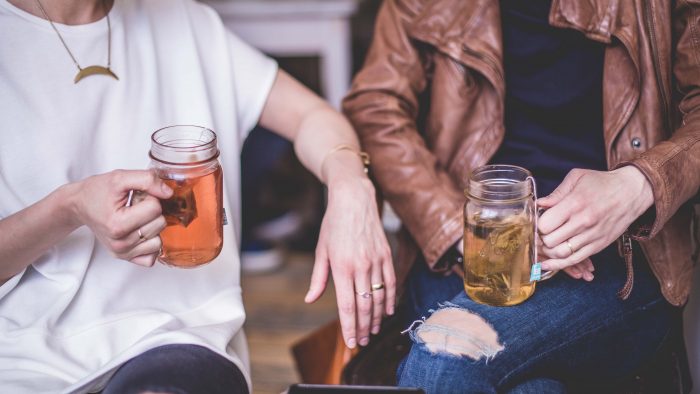She had a reputation as being opinionated.
Not the refined, political kind of opinionated; the kind of opinionated where kids illegally drinking their cheap beers in the basement would lower their tone and over-emphasize the middle syllable for obvious effect.
“She’s very oh-PIN-ionated,” they would say. “You know what I mean.”
I knew the story of her before I had met her.
“She’s a bit wild. You can never quite tell what she will say. But she loves those boys, fiercely,” was the word on the town.
She had been divorced when her children were young, and had created the financial structure she wanted for them. She filled a need.
Their small town in the fields was home to thousands of immigrants whose shoddy English kept them working at the local meat packing plant. She saw a need and learned to fill it—no agonizing over fulfilling an inner life calling as we millennials tend to do. She learned Spanish fluently. She learned to teach. And then she taught English to those who spoke Spanish. Her course at the college on United States Citizenship educated both the native English speakers, as well as the second language English speakers and helped both to understand the role of citizenship—the duty.
How many people would she boost from flailing to higher education? From “where do I fit” to “I fit, because of her.”
She had precise methods for doing most things. The first step in making a salad is to rub a garlic clove around the inside of a bowl. That way, the leaves become infused with flavor. The men in her family did not need so much oil in the dressing; heart disease was genetic. She would look at me intently, as if to say, “please hear that.”
She took me out to go horseback riding, never once questioning if I’d like to go alone with her, leaving my then partner alone at the house. After all, can’t women enjoy time together without apologizing?
We can. We did.
She and I both were early risers. I find that most people with a strong sense of responsibility are. Single mothers and firstborns. Two women who had been taught to put the coffee on, or else there’s none to sip. Taught to claim the dawn as the time each day when we exist for ourselves, selfishly—luxuriously—sipping bitter brown liquid from a warm mug and scribbling musings about our most recent book or what to get at the grocery store.
So, there we were, two early risers and caretakers in the kitchen together, the June sun not yet up, our bare feet on the cold, ceramic slabs. My anxiety peaked to see her awkwardly vulnerable in a bath robe. This is not the way I wanted to start my day. I needed down time—time for me—before I could figure out how to be my best self around her. She paid no heed.
“Sit down, the coffee is almost done. How do you like yours? I avoid cream, but I do have it if you like it. You know heart disease runs in our family.”
I asked for a splash of cream, please.
It seemed like a bold reclaiming of my own space in that cold, dark kitchen. Heart disease be damned, I want what I want, I am who I am, I’m dating your son, and there has to be room for both of us.
The monologue belonged to only me.
She was as kind, nonjudgmental—accepting as ever. She poured us both a cup, and brought over the cream so that I could add as much as I wanted. I exhaled and my heart softened. Why do I do that? That rigid thing?
She set the coffees down for us, offered me a blanket for my feet, and her eyes were kind. She was here for genuine conversation, not battle. The arching in me softened. It seemed almost humorous that my partner would wake with the sun—that he’d be oblivious to the Cold War I’d already fought and lost, but had really lost only because there was no war in the first place, and that we thus had both won. In other words, it seemed humorous that he would wake oblivious to that his mother and I had just enjoyed coffee together. As two strong women, it turns out, can do.
I finished mine in a few sips. I’d noticed she served them only a quarter full.
“Help yourself to more. I made us a full pot. I’ve just learned to only pour small cups; that way it stays hot as we sip.”
So here I am, six or seven or eight years later. That relationship came and went, I am happily married, and as I write, sitting in my own home—my own kitchen—I’ve only filled my coffee cup a quarter full. I sip it hot, then pour a bit more in. The sun isn’t yet up, the slabs are just as cold as ever, but I’ve learned to invest in slippers. I feel a sense of purpose, in only taking what I need and not letting the rest go cold.
As I sip, the warmth laps my tongue, then trickles down my throat and into my belly. I swallow, in solidarity—in friendship—grateful to have become an adult that is among the ranks of the opinionated women.
“Oh-PIN-ionated.”


 Share on bsky
Share on bsky





Read 8 comments and reply